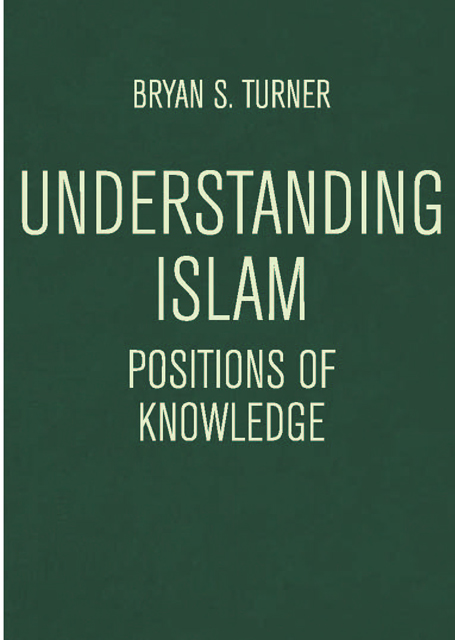Book contents
- Frontmatter
- Contents
- Acknowledgements
- Introduction: What is Understanding?
- 1 The Changing World of Islam
- 2 Insiders and Outsiders
- 3 The Rise of the Sociology of Islam
- 4 Postmodernism, Globalisation and Religion
- 5 Orientalism and Islam
- 6 Islamophobia
- 7 Feminism, Fertility and Piety
- 8 The Problems of Positionality
- 9 The Possibility of Dialogue
- Index
5 - Orientalism and Islam
Published online by Cambridge University Press: 13 April 2023
- Frontmatter
- Contents
- Acknowledgements
- Introduction: What is Understanding?
- 1 The Changing World of Islam
- 2 Insiders and Outsiders
- 3 The Rise of the Sociology of Islam
- 4 Postmodernism, Globalisation and Religion
- 5 Orientalism and Islam
- 6 Islamophobia
- 7 Feminism, Fertility and Piety
- 8 The Problems of Positionality
- 9 The Possibility of Dialogue
- Index
Summary
Introduction: Imperalism and Edward Said’s Orientalism
Unlike the study of other ‘world religions’, the understanding of Islam has been controversial insofar as it has been continuosly and heavily influenced by political events in both the West and the Middle East, such as 9/11, the invasion of Afghanistan and the enduring conflicts between Palestine and Israel. In 2021 attacks by ISIS, Al-Qaeda and their affiliates opened up a new front as they spread through the Sahel in Mali, Chad, Niger and Burkina Faso. The underlying causes include drought, poverty, unemployment and ineffectual governments. As with Afganistan, international military action often results in high civilian casualties through ‘collateral damage’, thereby widening the gap between Western forces and local populations.
Understanding Islam has also to be concerned with ancient divisions and contemporary political struggles within the Islamic world itself. As with other world religions, Islam has significant theological and political divisions, primarily between Sunni and Shia traditions. However, so-called Islamic ‘sects’ include Ahmadiyya, Ibadiyya, Ismailis and Kharijites. Sufi mysticism is widespread across the Muslim world, but is not routinely regarded as a sect. The Sunni tradition has been historically dominant and shaped by the idea of Ash’arism – the conservative branch of Sunni Islam that has been promoted by Saudi Arabia. Its original doctrines were the work of al-Ash’ari (873–936).Over time this tradition became the basis of authoritarian rule in Sunni Islam in emphasising the importance of scriptural and clerical authority. While the unintended consequence of these uprisings, in which young people dominated opposition to ruling elites, was to re-inforce authoritarian rule especially in Egypt and Turkey, the protests and the sense of alienation with the legacy of powerful elites and their political dominance continue. Hence these regimes continue to be challenged by younger generations who want greater personal freedom and more democratic (or at least competent) rule. In Turkey, the new mood of reform is expressed by writers such as Mustafa Akyol who made the case for greater personal liberty in his Islam without Extremes (2011). Following a lecture he gave in Malaysia, the book was banned on the grounds that it would result in civil unrest.
- Type
- Chapter
- Information
- Understanding IslamPositions of Knowledge, pp. 92 - 109Publisher: Edinburgh University PressPrint publication year: 2023



